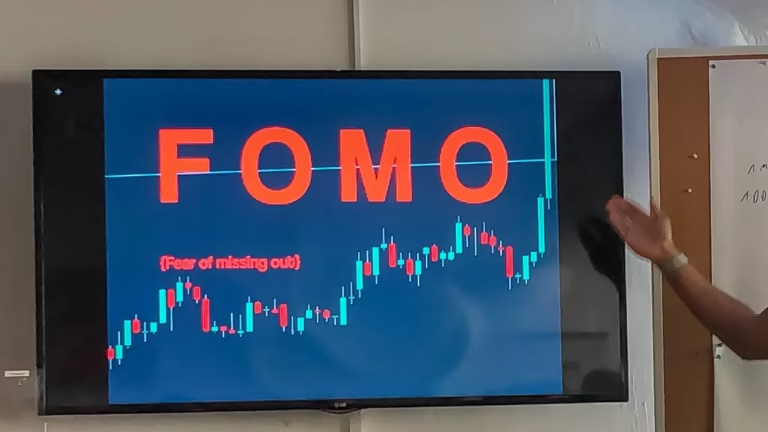Why we have never had a better situation than in a Post-COVID World
I read a lot of articles and hear news about the supposedly miserable life that recent and current graduates from college will face when they join the job market.
I totally disagree and would go as far as believing that we never had better times than now.
Here is the case the way I see it:
Part 1: What does a graduate bring to the table?
- You have proven that you can conduct research on a topic and follow a strict set of rules to describe your findings, your methodology and and your conclusion
- You have worked in many groups and teams to develop homework, presentations, using digital tools like Powerpoint, Preszi, spreadsheets, file sharing software
- You are able to get a hold of the folks you studied with basically all times using text, WhatsApp, Instagram, email (I know, it’s old fashioned), etc.
- You have lived in an environment where you are told that parties is a focus but by the time you graduate you had to follow a long set of rules, regulations, attend virtual or in-person office hours, etc.
- You have developed a sense of community and probably feel an association with the college or university you graduated from. They will keep reminding you when they start asking you to join alumni clubs and donate.
- You have gotten used to be working with peers that are similar in age (give or take a few years) and satisfy old people who grade your work (at least to the extend you needed to get credit for a course)
- You had to learn that attending alone, as was common in high school, is not enough to move forward and ultimately graduate.
- You may not realize it but you have won a huge competition. You left 40% of the people you started with as an undergraduate behind in year 1. Only 30% of students who start finish their undergraduate degree in 4 years. if you did that, you left 2/3rd of your peers behind. In case you go to grad school another 50% drop out before graduating. In the end you are one of the few left standing.

Part 2: What is in demand in a Post-COVID economy?
- Companies want people who can work independently
- Companies want people who are familiar with technology
- Companies want people who aren’t’ afraid to use authentication software, document sharing platforms, collaboration tools, etc.
- Companies want people who can demonstrate flexibility
- Companies want people who use their talents to accomplish a goal
- Companies want people who know how to work in teams, ideally remotely, and then present results succinctly
- Companies want people who buy into a specific culture and way of doing things and are proud to represent that community
- Companies want people who can find each other without always being told every little detail of what needs to get done.
- Companies want people whoa re not defined by the proximity to the company address, but motivated by the goals that need to be reached.
- Companies want people who don’t mind to compete and be properly compensated when they do.
Part 3: How can you shape your life in a Post-COVID economy?
- You can live pretty much any place you want. You should find a location that has a climate you like, affordable living and great internet (at least until we all can get Starlink — Internet). Now you create a resume that focuses on your talents and knowledge and begin applying on all available online platforms, making sure that all the things in Part 1 are obvious.
- As soon as you start getting some income, open an accumulation account (savings account) and put at least 10% of your money into the account each month. Early on you should be able to put 20% or more. Don’t waste money and keep track about every expense in detail.
- Begin learning about the FIRE movement. The idea is that you have spent a considerable amount of time getting your degree. Now you need to spend another 8–12 years of work and determined investing, and you can retire. That kind of retirement does not mean you sit in the sun and do nothing. It means you can do what you love without fear or care about money. You decide if you want to exchange any time for money or not.
- When you have learned how to track expenses, keep a budget, be frugal, and define a big goal that explain at what point you stop working for money, begin studying residential real estate investing or get a mentor. Don’t fall for the FIRE movement index fund investment scheme. It only works when stock perform well most of the time and inflation is low. With residential real estate you can leverage your money and get all the tax benefits, well beyond index funds. Smart graduates get a mentor, so they don’t have go to work, safe and learn all the investing stuff.
- Read books like The Wealthy Gardener, Turnkey Revolution, Cashflow Quadrant, etc. You would probably also want to get an account on Bigger Pockets to be in a community of real estate investors you can ask questions and have access to lots of views, ideas, etc.
- When you have the first $20K together, work with your mentor to purchase your first 4Bed/2Bath residential property. In case you want to accelerate the plan or have a little more money, you can also buy a triplex or fourplex and let other graduates live in your property and pay you rent. If you chose a location that has a nice climate but isn’t too expensive you could maybe even occupy that house yourself and use your first time home buyer benefit. In that case buy the biggest house you can possibly afford. you will never get a property for less down payment in your life. Think about it. You can buy a $600k house with 3% down = $18k. If that’s a nice 4-plex, you live for free and your tenants pay the house and all expenses for you. you probably make a little positive cash flow that you can put into your accumulation account to get to your next investment property even faster. If possible also try to find a state that has no state income taxes and reasonable property taxes, etc.

End result… You have what employers want in the post-COVID world where nobody knows if we will ever have to come together in a building to do knowledge work in our modern knowledge economy. You know how to succeed in a digital world and with some discipline that your mentor can help you develop, your life story will read something like this:
“She was a wonderful daughter and lived at home till she was 18 years old. Then she went to college and graduated a Master’s Degree age 25. She relocated to a nice town on Florida near a huge university and got a job for a company in the healthcare/pharma industry. When she turned 27 she bought a 4-plex and rented three units to female college grad students. She didn’t have to pay for her own living space anymore ever since. When she turned 38 she and her mentor had developed a portfolio of 12 properties that she owned. Her job, though paying better and better was no longer fulfilling enough. She turned her portfolio of properties over to a property management company, retired from work and is now traveling the world. The way things look right now, by the time she turns 50 about 30% of her properties will be fully paid off, massively increasing her monthly passive income and that will continue to get better each year. She exchanged time for money for a total of 15 years in her life (including her college waitressing job) and only does what she is passionate about and really loves.”

This can be your story. The conditions to turn it into your reality were never better. All you need to do is start down this path, find a mentor soon, and stick to the plan. It’s not hard — just takes some discipline. I hope you start today. let me know if you would like me to help you.
If you would like to get a jump start on getting in the right mindset for success Download your free mindset manual





